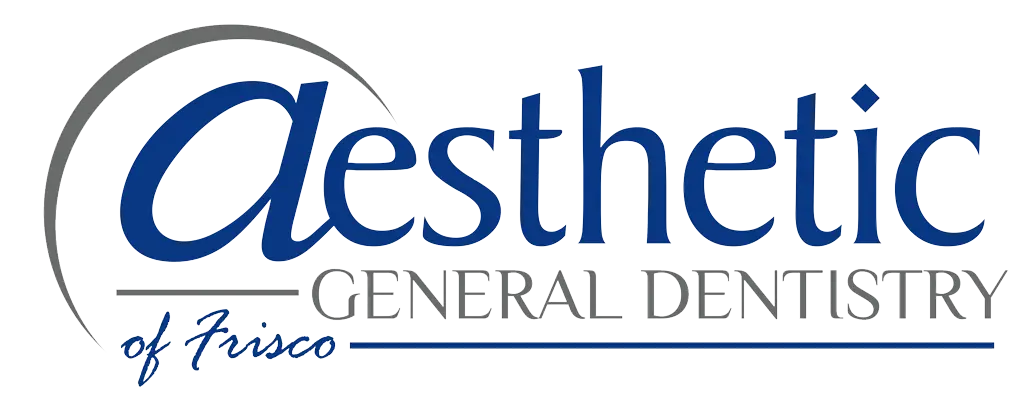Tooth Extractions in Frisco, TX
We Offer a Seamless Tooth Extraction Experience
Do you suffer from severe tooth pain or have a severely decayed tooth that needs to be removed? If so, it might be time for you to consider a tooth extraction. Tooth extractions involve the removal of a damaged or decayed tooth, and while they may seem daunting at first, rest assured that this minor dental procedure can provide relief from any major discomfort as well as ensure optimal oral hygiene.
Whether your teeth require simple fillings or more complex treatments such as root canal therapy or periodontal care, we’ve got you covered! Our experienced and certified dental team at Aesthetic General Dentistry will make sure to take extra-special care of your teeth throughout the entire process. We bring comfort and expertise in both restorative dentistry as well as suggestions for better preventative measures.
Call us to learn more about tooth extractions!


Tooth Extraction Treatment
An extraction is a dental treatment in which a tooth is removed from the patient’s mouth and removed from its socket in the jawbone. There are several reasons why tooth extraction may be necessary, including:
Severe tooth decay: Extraction may be recommended if a tooth is extensively decayed and cannot be saved with other dental treatments like fillings or root canals.
Request Appointment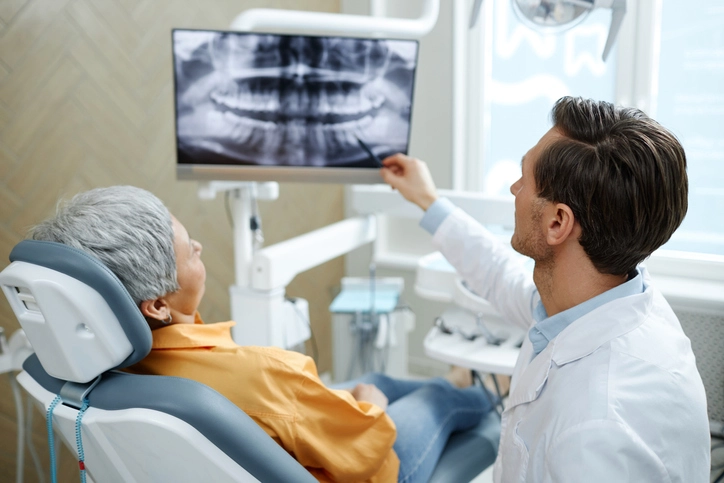
Impacted wisdom teeth: These teeth are also referred to as the third molars often don’t have enough space to erupt fully and can become affected. Pain, infection, and injury to surrounding tissues can all be caused by wisdom teeth that have been impacted surrounding teeth, making extraction necessary.
Request Appointment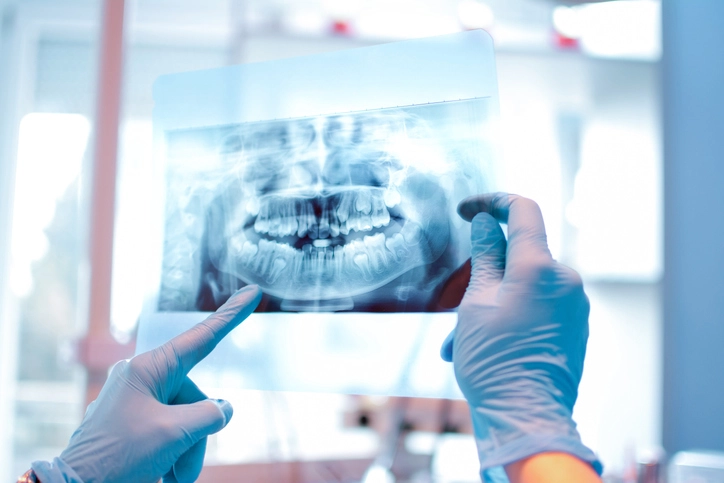
Crowding: In some cases, tooth extraction may be performed as part of orthodontic treatment to create more space for properly aligning the remaining teeth.
Request Appointment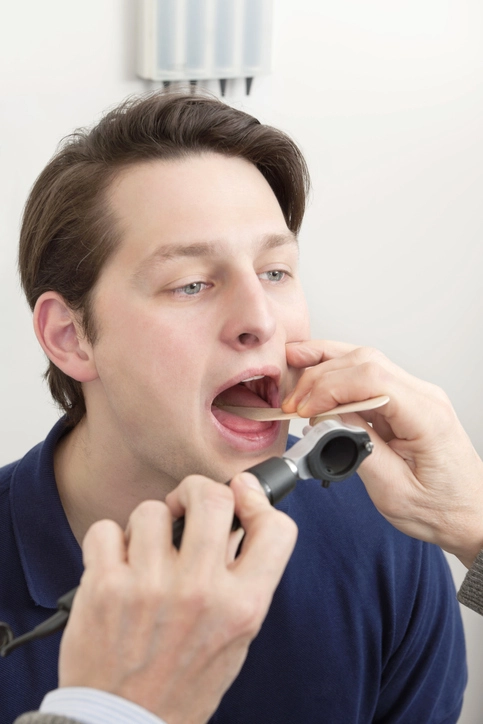
Periodontal disease: Advanced gum disease can lead to loose teeth that may need to be extracted to prevent further damage to the gums and supporting structures.
Request Appointment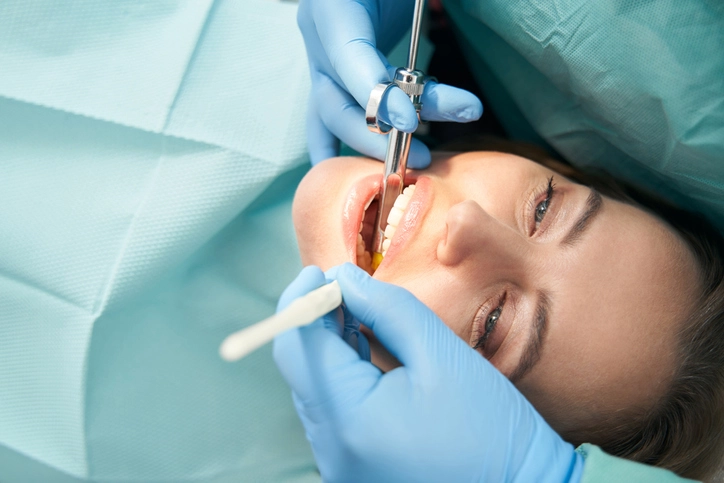
Trauma or injury: If a tooth is severely damaged due to trauma or injury, extraction may be required if it cannot be successfully restored.
The tooth extraction typically involves numbing the area with local anesthesia to ensure a painless experience. In more complex cases, such as impacted wisdom teeth, sedation may be used to keep the patient relaxed. The dentist or oral surgeon will carefully remove the tooth and provide post-extraction instructions for proper healing.
It’s important to follow all post-extraction care instructions offered by your dentist in order to facilitate recovery and cut down on the risk of complications. If you require a tooth extraction, consult your dentist to determine the best course of action for your situation.
Request Appointment
Reasons For Tooth Extraction
There are several reasons why a tooth extraction may be recommended:
A Brighter, More Attractive Smile
- Severe Tooth Decay: Extraction may be necessary when the deterioration of the teeth has evolved to a more advanced state and the tooth cannot be saved through restorative treatments like fillings or crowns.
- Gum Disease: Advanced periodontal (gum) disease can lead to loosening of teeth. In cases where teeth are no longer stable and pose a risk to the surrounding teeth, they may need to be extracted.
- Impacted Wisdom Teeth: The wisdom teeth, often known as the third molars, third molars, often do not have enough space to erupt properly. This can lead to impaction, causing pain, infection, or damage to neighboring teeth. Wisdom teeth extraction is a common procedure to address these issues.
- Dental Crowding: In some cases, tooth extraction may be suggested as a component of the orthodontic treatment in order to provide room for the properly aligning the remaining teeth.
- Fractured or Broken Teeth: Teeth that are severely fractured or broken beyond repair may need to be removed in order to stop an infection from spreading or avoid additional harm.
- Infection or Abscess: When a tooth infection or abscess cannot be resolved with antibiotics or root canal therapy, extraction may be the only viable option to prevent the spread of infection.
- Preparing for Dentures or Dental Implants: In some cases, tooth extraction may be necessary to make room for dentures or dental implants as part of a vital treatment plan.






Wisdom Teeth Removal
Wisdom teeth, known as third molars, typically emerge in late adolescence or early adulthood. Unfortunately, they often lack sufficient space to erupt properly, leading to various issues. Common dental procedures include wisdom teeth removal designed to address these problems. Some common reasons for wisdom teeth removal include:
- Impaction: Wisdom teeth are frequently impacted, meaning they do not fully emerge from the gum line. Wisdom teeth impacting can cause discomfort, edema, and infection.
- Crowding: The eruption of wisdom teeth can fill existing teeth, causing misalignment and shifting.
- Infection or Gum Disease: Wisdom teeth can be challenging to clean properly, making them more susceptible to infection and gum disease.
- Damage to Nearby Teeth: Wisdom teeth can grow at awkward angles, pushing against neighboring teeth and causing damage.
- Cyst Formation: In some cases, cysts can develop around impacted wisdom teeth, leading to potential jaw and nerve damage.
FAQs about Tooth Extractions
Is tooth extraction painful?
Tooth extraction is usually performed under local anesthetic to avoid discomfort. After the extraction, you may experience some discomfort, This can be treated with OTC painkillers medications.
How long does it take to recover from a tooth extraction?
Recovery time varies by complexity of the extraction and the individual’s healing process. Most patients expect to recover within a few days to a week.
Can I eat after a tooth extraction?
Sticking to a soft diet for the first few days following a tooth extraction is recommended. As you heal, you can gradually reintroduce solid foods.
What can I do to speed up the healing process?
Following post-operative instructions provided by your dentist or oral surgeon is crucial. This typically includes keeping the extraction site clean, avoiding vigorous rinsing or spitting, and refraining from smoking or using straws, which can disrupt the healing process.
Do I need a replacement for an extracted tooth?
In some cases, it may be necessary to replace an extracted tooth, especially if it is a visible or functional tooth. Dental implants, bridges, and dentures are among methods that can replace teeth that have been lost due to extraction.
Schedule An Appointment Today!
Tooth extractions and wisdom teeth removal are important dental procedures that can alleviate pain, prevent infection, and preserve oral health. At Aesthetic General Dentistry of Frisco, our experienced dental professionals are committed to providing safe and effective tooth extraction services tailored to your unique needs.
Getting ahead of an extraction problem is key to preventing further issues down the road, so if that sounds like something that best suits your needs then don’t wait – schedule an appointment today!
